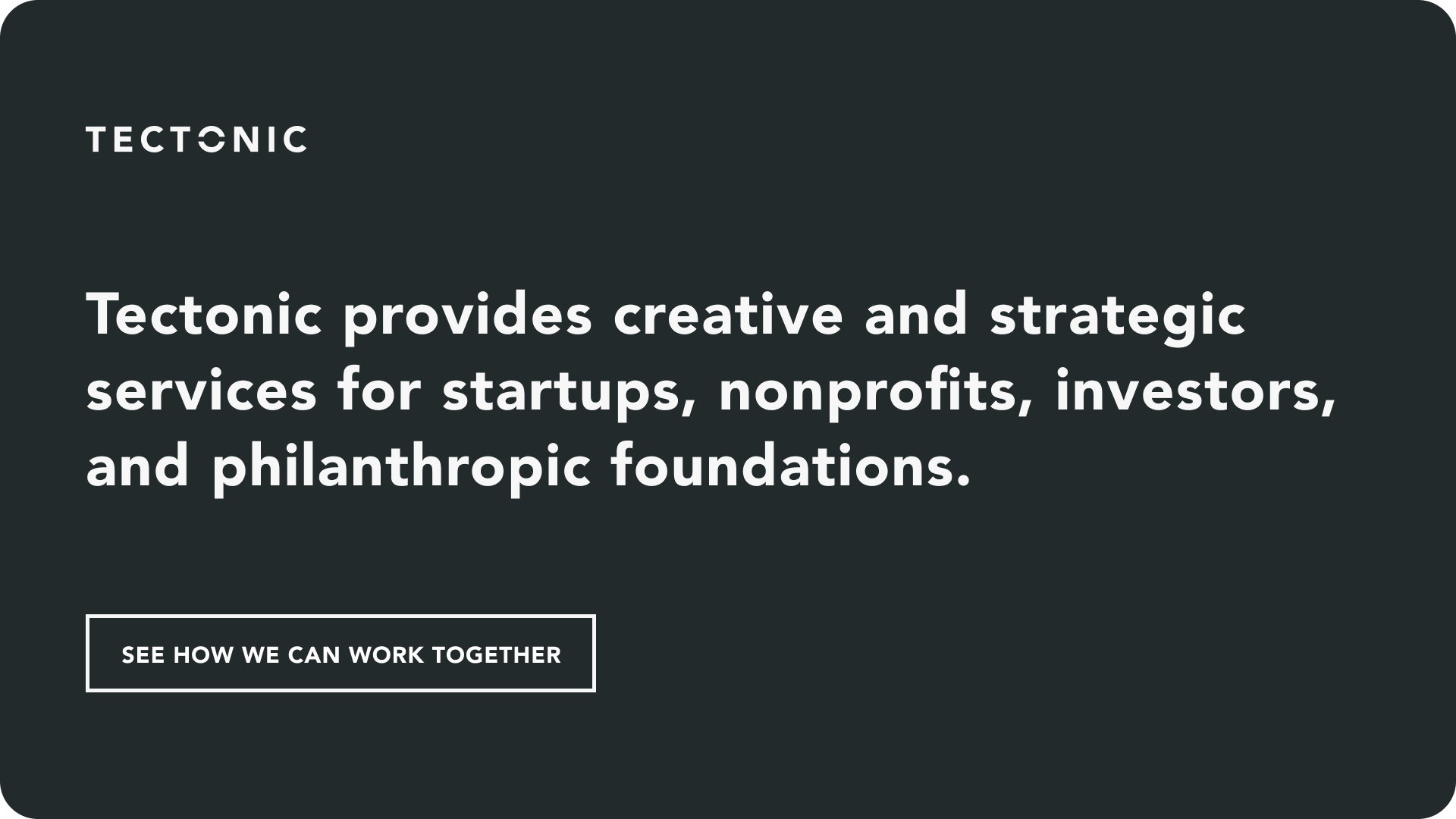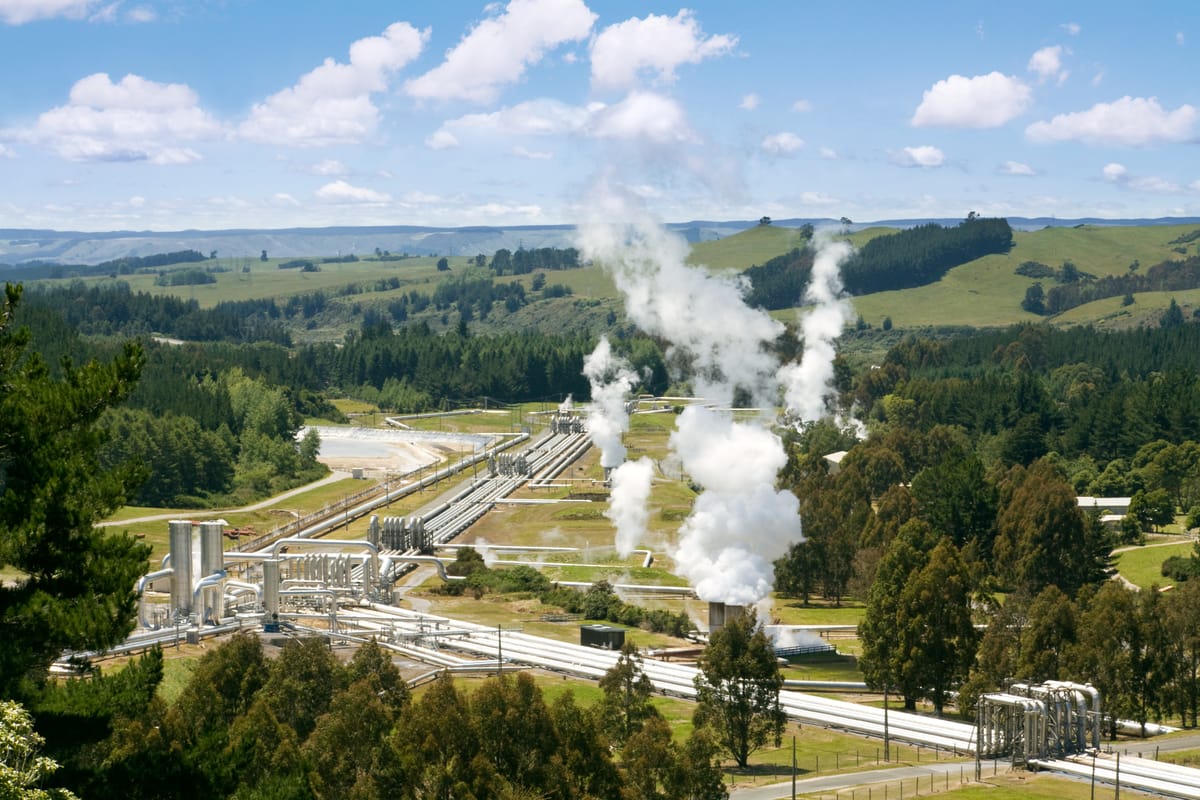This week, we're exploring the potential of geothermal power to supply electricity for data centers, how the city of Ann Arbor is creating its own sustainable energy utility, and expanded solar capacity in the United States and Africa.
If you enjoy our Weekly Brief, please consider sharing it with your friends and colleagues in the climate community and encourage them to subscribe here. You can also follow Tectonic on LinkedIn and Instagram for more regular updates.
New report outlines how geothermal can power increased energy needs: A new report by the Rhodium Group suggests that advanced geothermal power could supply nearly two-thirds of new data center electricity demand by 2030. According to the report, geothermal power capacity could quadruple in the US – from 4 gigawatts to about 16 gigawatts – while costing the same or less than what data center operators pay today. In the western US, where geothermal resources are more plentiful, the technology could provide 100% of new data center demand, with cities like Phoenix potentially adding 3.8 gigawatts of data center capacity without building a single new conventional power plant. Advanced geothermal techniques, which involve drilling deeper and wider than before to access hotter rocks, have the potential to unlock 90 gigawatts of clean power in the United States alone, according to the Department of Energy, and have led to a surge of startups in the sector, including Fervo Energy, Bedrock Energy, and Quaise Energy.
Ann Arbor launches sustainable energy utility: The city of Ann Arbor, Michigan, is launching its own sustainable energy utility, which will generate and distribute power in a way that could change the future of power grids, with the goal of creating a reliable, clean, and resilient model. The sustainable energy utility, known as an SEU, will function alongside the existing investor-owned utility, DTE Energy. It will allow subscribers to generate and use their own power and sell excess generation back to the grid while reducing energy consumption through conservation and efficiency measures. An SEU has three distinguishing features: it can function at almost any scale, it is created for the express purpose of providing clean energy, and it provides small-scale, decentralized, more resilient infrastructure, which will allow for increased reliability and faster recovery from power outages.
Solar saw big gains in 2024: The US power grid added more capacity from solar energy in 2024 than from any other source in over two decades. Approximately 50 gigawatts of new solar generation capacity was added last year, according to a report by the Solar Energy Industries Association and Wood Mackenzie. This significant gain in solar energy comes despite criticism from US Energy Secretary Chris Wright and President Trump, who have expressed doubts about the ability of renewable energy sources to meet the world's growing electricity needs. Energy experts, including Ernest Moniz, who served as energy secretary in the Obama Administration, project a 55 percent increase in electricity demand over the next 20 years, with much of the growth related to the expansion of data centers, manufacturing, and industrial activities.
Brazil launching investment fund for forestry: Ahead of hosting COP30 later this year, Brazil is formerly launching a $125 billion fund, dubbed the Tropical Forests Forever Facility, to protect tropical forests. The fund will pay nations a fee for every hectare of forest they maintain, with countries like Brazil, Colombia, Indonesia, and the Democratic Republic of the Congo standing to benefit. Countries including Germany, France, the United Arab Emirates, and Singapore are interested in joining the anchor contributors list. The World Bank is helping to develop the fund and is expected to manage it, with the goal of receiving contributions by the time the summit starts this November. Brazil expects rich nations to loan the tropical forest fund $25 billion to kickstart the initiative, which would help attract another $100 billion from the private sector.
Explore ways we can work together.
Africa solar installation expected to grow 42%: Africa's solar power installation is expected to grow sharply in 2025, with the continent predicted to cumulatively install 23 gigawatts of new solar capacity between 2025 and 2028 – more than doubling its 2024 cumulative installed capacity in only four years. The Global Solar Council reported that African countries added 2,400 megawatts of solar generation capacity in 2024, and predicted a 42% growth in new installations in 2025. Despite the growth, Africa's solar expansion is being held back by high capital costs, which are about seven times higher than in developed countries, with many projects struggling to secure financing due to high interest rates, currency risks, and lack of guarantees. The largest markets for solar power in Africa are South Africa and Egypt, but there is also rapid growth in West Africa, with countries such as Ghana, Burkina Faso, and Nigeria experiencing significant increases in solar installations. Ghana nearly quadrupled its installations to 94 megawatts of solar power.
Africa climate tech fund raises $55M: The African venture capital firm Equator raised $55 million for its first fund to support climate tech startups in Africa. Climate tech startups in Africa face a difficult funding landscape, relying heavily on development finance institutions, foundations, and endowments, making them vulnerable to shifts in global capital flows. Equator's fund seeks to bridge this gap by backing scalable solutions that can attract private capital. Equator's fund is backed by institutions such as British International Investment, Proparco, and IFC, as well as foundations and endowments like the Global Energy Alliance for People and Planet and the Shell Foundation.
Indonesia to resume carbon credits for forestry sector: Indonesia plans to resume allowing its forestry sector to sell carbon credits after a three-year hiatus, which could help recover the embattled offset markets. The country had previously halted the approval of new carbon offsets and froze the export of credits in 2022 to retain more benefits of emissions-mitigation projects but now aims to resume sales next month from nature-based projects, including peatland conservation and reforestation.
Germany earmarks €100 billion for climate: Germany earmarked €100 billion for climate projects as part of a new spending deal, which has led to a significant increase in the shares of green energy companies that could benefit from the extra funding. The allocation of €100 billion for climate projects is expected to help Germany achieve its climate neutrality goal by 2045, and the new fund will be used to support additional projects that reduce greenhouse gas emissions and advance the transition to a more sustainable economy. The deal still needs to be approved by legislators before Germany's new parliament convenes on March 25.
36 companies account for half of global emissions: The Carbon Majors database released a report estimating that just 36 fossil fuel and cement producers are responsible for more than half of the world's greenhouse gas emissions in 2023, with state-owned companies making up 16 of the top 20 emitters. The top five state-owned emitters, which include Saudi Aramco, Coal India, CHN Energy, National Iranian Oil Company, and Jinneng Group, accounted for nearly a fifth of all global emissions in 2023. Meanwhile, the top five investor-owned emitters, including ExxonMobil, Chevron, Shell, TotalEnergies, and BP, made up 5 percent of emissions. The report's findings are based on a database that traces the emissions from the production and combustion of products from 180 of the largest oil, gas, coal, and cement producers from 1854 to 2023.
Supreme Court allows states to sue oil companies: The US Supreme Court rejected an effort by 19 Republican attorneys general to block states from suing oil companies for financial damage related to climate change, allowing cases brought by states such as California, Connecticut, Minnesota, New Jersey, and Rhode Island to proceed. The attorneys general had argued that the state cases are unconstitutional and could affect interstate commerce. Democratic-led states have sued major fossil fuel companies, including BP and Exxon Mobil, for allegedly deceiving the public about the effects of their greenhouse gas emissions.
Mercedes introduces new electric sedan: Mercedes-Benz announced that its most affordable sedan, the CLA, will be available first as an all-electric car and then as a hybrid, and will not offer a gasoline-only version. The all-electric CLA will have a range of almost 500 miles between charges and can add over 200 miles of range in 10 minutes using high-voltage chargers, addressing concerns about driving range and refueling time that have deterred people from buying electric cars.
New York energy provider seeks rate hikes: The utility company Con Edison, which serves over nine million people in New York City and Westchester County, filed a request to raise its rates to help pay for the shift to cleaner energy, prompting a backlash from residents who are already struggling with high energy bills. The proposed rate increase, which includes an 11.4 percent increase for electricity and 13.3 percent for gas, is intended to support clean energy investments needed to build and maintain the grid of the future. Many New Yorkers are balking at paying more for their energy bills. As outlined in its 2019 climate law, the state's transition to green energy will require significant upgrades to the power grid, which is currently facing surging demand from energy-hungry tech ventures and must triple its capacity by 2042 to meet the state's zero-emissions target.
Google embraces lithium batteries: Google has installed 100 million lithium-ion cells across its data centers to provide backup power to its servers. The company has replaced its old lead-acid battery backup units with lithium-ion cells, which hold twice the power and take up half as much space, allowing Google to cut the number of cells required by three-quarters and make room for more servers.



